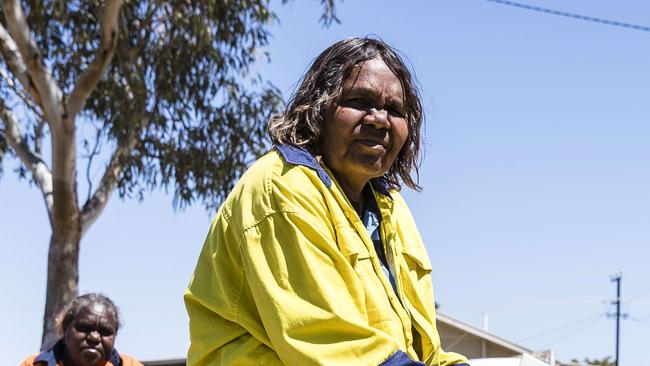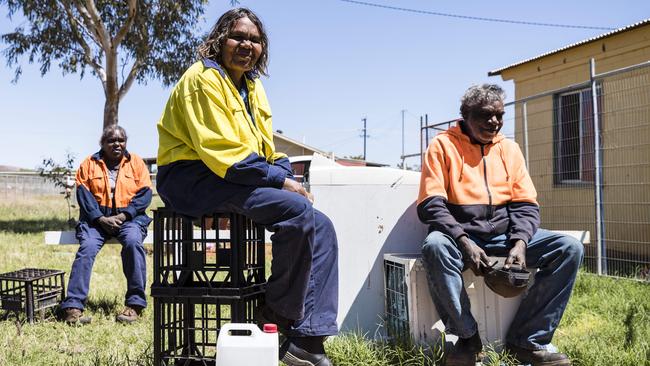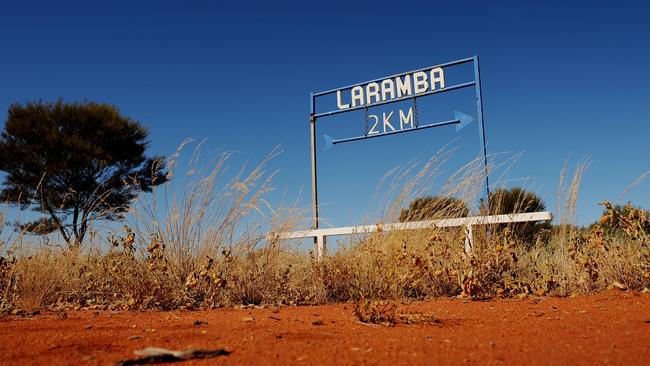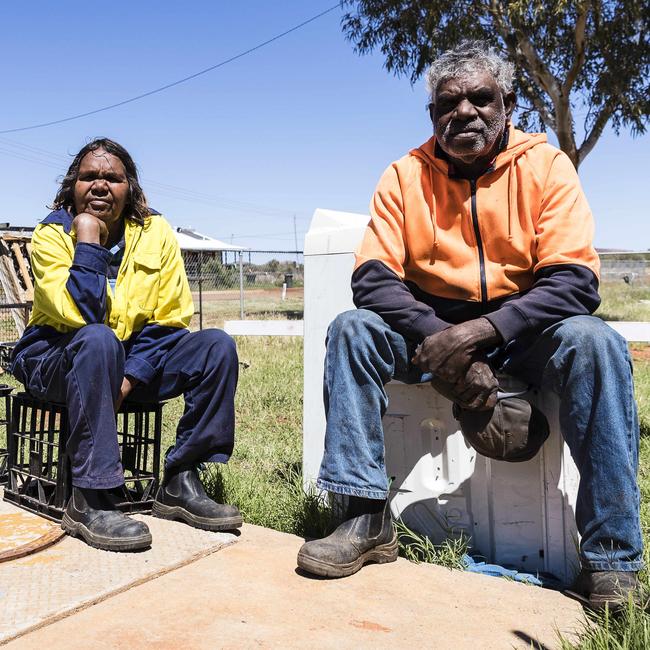Laramba residents appeal $9900 payout for delayed housing repairs
A Supreme Court appeal has been launched after a tribunal found a septic tank smashed by a sledgehammer did not make a home unlivable – amid dozens of other repair requests.

Alice Springs
Don't miss out on the headlines from Alice Springs. Followed categories will be added to My News.
Residents of a remote desert community claim unmet repairs to their homes left them in unlivable conditions, after reporting a rancid smell from a smashed septic tank, broken air conditioners and pest infestations.
Seven months after being compensated a total of $9900 for delayed repair requests for their Department of Housing homes, Laramba residents Kennedy Brown, Anita McNamara, Johnny Jack, Joanne Pepperill and Jamesie Stafford have lodged a Supreme Court appeal.
In January the Northern Territory Civil and Administrative Tribunal president Mark O’Reilly found the long list of repairs did not render their homes ‘uninhabitable’, but did award two homes compensation.
In July, the Laramba residents’ lawyer Daniel Kelly told the Supreme Court the NTCAT decision was “infected by errors”, had denied them natural justice, and was “manifestly inadequate”.

Between the three Laramba homes the repair requests included missing and leaking taps, blockages in the bathrooms, damage to floors, missing shower curtains, wire mesh hanging from the roof, shuddering noises, broken shower heads, damaged fly screens and windows, a toilet missing the flush button, and broken ovens.
The residents also said their homes suffered from cockroach, fly, and spider infestations, while one said there were mice living behind her stove.
They argued this reflected common problems among 27 other homes in the 300-strong community, 200km northwest of Alice Springs.
Ms Pepperill also told Mr O’Reilly that a 25cm hole over a septic tank meant a rancid smell, and a “tripping hazard” was always outside her door for nine months.
She said during unrelated repair works some men “broke the (lid) with the sledgehammer” in 2019.
“And they just left it open, it was just smelling everywhere,” Ms Pepperill said.

”It really upsets me that we have been left with such a bad house. It makes me feel ashamed,” Ms Pepperill said.
Mr O’Reilly found this was a breach of the Department’s responsibility, and awarded her $2700 for the “unpleasant” septic tank situation — and a total of $4400 for other repairs.
In a town where temperatures can exceed 40 degrees, Mr Brown and Ms McNamara said the broken split-system air conditioner meant they were forced to sleep outside.
However, Mr O’Reilly said since there was no documentation proving “the government people … put an air conditioner in”, he could not find the Department was responsible to fix it.
Mr Brown and Ms McNamara were not awarded any compensation for the airconditioner, but for their ineffective hot water system and other repairs were granted $5500.
Mr O’Reilly also dismissed all claims from Mr Jack, a man with a disability who struggled to use his shower-bath due to mobility issues.
He said the Department’s changes to the bathroom — installing a handheld showerhead and flexible hose so he could shower sitting down — met their obligations.
“While Mr Jack may have had particular needs, there is no requirement under the Act for a landlord to alter premises to suit the specific needs of a tenant with a disability,” Mr O’Reilly said.

In his findings, Mr O’Reilly highlighted that the case was far from a “run of the mill” tenancy spat, including language barriers, a long list of repairs and legal arguments and the “particularly problematic” barrier of the pandemic.
Mr O’Reilly said for other housing issues the residents were either at fault, struggled to provide evidence of defect timelines, or were delayed in reporting their complaints to the Department.
But the Anmatjere speakers also told NTCAT that no one explained the English-language documents they were asked to sign.
”Someone from the Department of Housing came to my house with some papers,” Ms Pepperill said.
“We signed the forms because they told us we had to.”
Mr O’Reilly said given the “very particular needs” of remote Central Australian public housing, “it might be argued that a contractual arrangement under the Residential Tenancies Act … is an ineffective model to ensure that housing needs are adequately met”.
In the July appeal, Mr Kelly said Mr O’Reilly’s findings did not reflect the realities of life in Laramba.
Mr Kelly said the delays in reporting repairs were because there was no phone or internet reception in the community with low-literacy rates.
He also said the tenants were “misdirected” to the wrong person when trying to report repairs.
Supreme Court Justice Meredith Huntingford adjourned the hearing on July 14, with her decision to be released at a later date.





